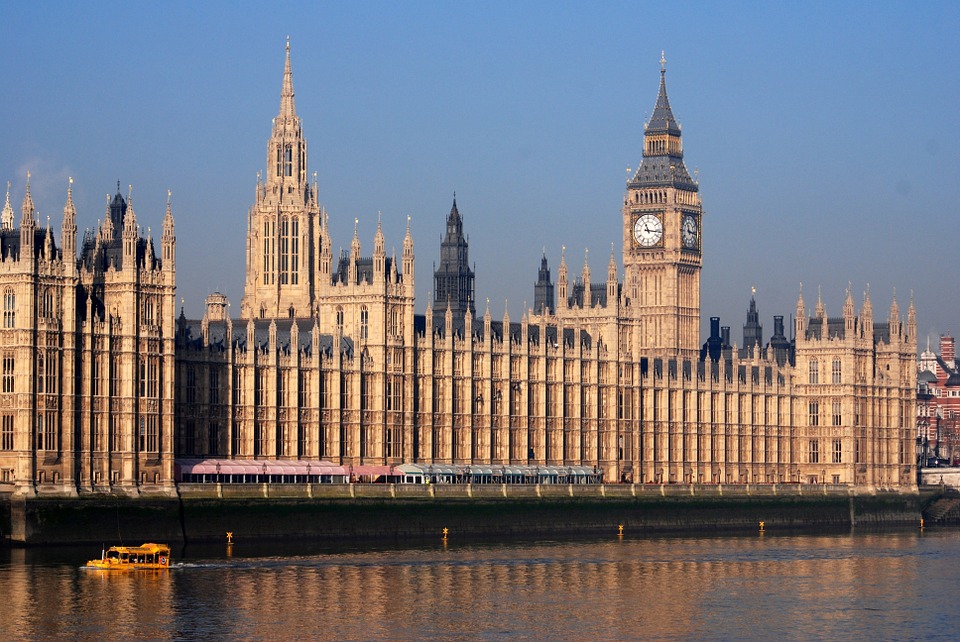
For the second time in seven years, the UK has woken up to the prospect of a hung parliament following the results of yesterday’s general election.
PM Theresa May announced the election on April 18, 2017 when her ruling Conservative Party had an opinion poll lead of 20 points over Labour.
With a small majority in the House of Commons, May sought to reinforce the Conservative Party’s position ahead of Brexit negotiations.
“It was with reluctance that I decided the country needs this election but it is with strong conviction that I say it is necessary to secure the strong and stable leadership the country needs to see us through Brexit and beyond,” May said. “Let us remove the risk of uncertainty and instability and continue to give the country the strong and stable leadership it demands.”
With 318 seats, the Conservatives remain the largest party in Parliament but they don’t have enough seats to form a majority government and must now seek partners to form a coalition, with Northern Ireland's DUP looking the most likely option.
Alison Carr, IET director of governance and policy, said: “It’s difficult to predict at this stage what the implications of a hung parliament will be for engineering and technology.
“The focus on the industrial strategy throughout the general election campaign has been disappointing. So whatever the outcome now, it’s imperative that we don’t lose the momentum towards creating an industrial strategy – which all political parties have endorsed.
“It’s also vital that any Brexit negotiations ensure we maintain access to skilled labour, sustain UK involvement with pan-national scientific and technical research, and retain and develop a leading role in global technical standards.”
Paul Everitt, ADS Chief Executive added: “The season of electoral surprises continues. The UK faces a period of uncertainty as our politicians reflect on the electorate’s verdict and consider the country’s approach to the political and economic challenges ahead.
"All political parties must now focus on working in the long-term best interests of the people and nations of the UK. Industry will continue to work to secure the best Brexit deal and an industrial strategy that helps to sustain and grow high-value jobs in every part of the country.”
Brexit is a key challenge for the nuclear sector and resolving the Euratom issue should be an immediate priority for incoming ministers, said the Nuclear Industries Association (NIA).
NIA chief executive Tom Greatrex said: “This election was called to resolve the direction of Brexit but its outcome has cast serious doubt over the future. In this situation, industry desperately needs clarity and the new government, whatever form it takes, must resolve the critical and complicated Euratom issue.
“If current policy is maintained, which would see the UK withdraw from Euratom, the new government must, as a matter of urgency, look to ensure alternative arrangements are in place as soon as possible to avoid a damaging cliff edge.
“The clock is ticking towards March 2019, and without equivalent new arrangements, the exponential economic growth potential of the UK’s nuclear programme could well be lost.”
Terry Scuoler, chief executive of EEF, believes the new administration must put industry first and ensure business receives as much support and backing as possible.
“The Brexit negotiating strategy requires a careful rethink,” he said. “Industry should be at the table, alongside whatever administration is formed, to help ensure we have the right negotiating position, which is something that's been sadly lacking until now.
“The main parties have championed an industrial strategy for Britain and this must not be a casualty of the political turmoil. It is the best blueprint for business in the current circumstances.”
As it stands, the Conservatives have lost 12 seats whilst Labour have gained 29 seats to return 261 MPs to parliament. The Liberal Democrats made a four-seat gain, bringing their numbers up to 12 MPs, whilst the Scottish Nationalists lost 21 seats and have 35 seats in the House of Commons.




Red Bull makes hydrogen fuel cell play with AVL
Formula 1 is an anachronistic anomaly where its only cutting edge is in engine development. The rules prohibit any real innovation and there would be...